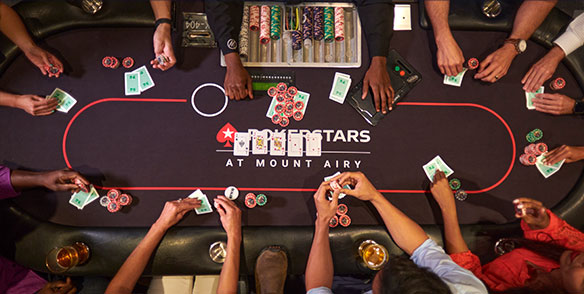
Poker is a game that puts an individual’s analytical, mathematical and interpersonal skills to the test. While many people are aware that the game of poker pushes an individual’s mental endurance to the limit, few are fully aware of the underlying facts about the game. Poker not only strengthens a player’s mental capabilities, it also indirectly teaches a number of life lessons that are applicable outside the poker table.
The main objective of poker is to form the best possible hand based on card rankings, in order to win the pot at the end of each betting round. The pot is the sum of all bets placed by players in a given hand. There are several ways to win a pot, including winning with the highest ranking hand or bluffing your way to victory.
One of the key facets of poker is observation. Observation enables the players to pick up on tells and subtle changes in an opponent’s attitude or body language. For this reason, it is important for the players to remain focused and avoid distractions in a poker game. This focus and observation are also valuable outside the poker room, when interacting with others in other social settings.
A good poker player will understand when to play a particular hand and how to play it. For example, a player will understand when to call, raise or fold. They will also be able to determine what cards their opponents have. This knowledge will help them to determine whether their opponents are holding a strong or weak hand.
In addition to this, poker requires a good understanding of probability. This is a vital part of the game and helps to improve a player’s decision making ability. It is also essential for players to know how to manage their bankroll, which will ensure they do not run out of money before the final betting rounds.
There are many other facets to poker that are not immediately obvious to the spectators at the tables. For instance, the game is known to enhance a player’s social skills, as it draws people from all walks of life and backgrounds. It is also known to improve a player’s analytical and mathematic skills, while pushing their critical thinking abilities to the limit.
Poker can be a fun and rewarding experience, regardless of whether it is played as a hobby or as a career. It is important for the players to keep in mind that they will perform at their best when they are happy. If they are feeling frustration, fatigue, anger or any other negative emotion, it is important that they leave the poker table and do something else for a while. This will allow them to return to the table refreshed and ready to win. The same applies to a professional player – they should only play when they are in the right frame of mind. This will ensure that they can maximise their performance and avoid costly mistakes.

